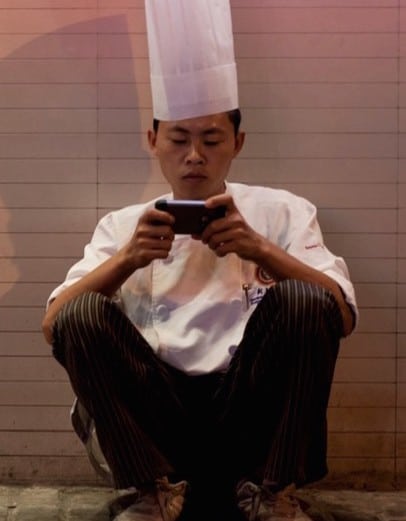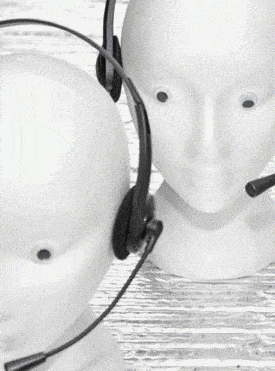Find out the week’s top mobile stories from around the world.
This week.. the mobile comms challenge facing Rio Olympics, Google says APAC is new global epicentre of digital media, can Pokemon Go save mobile health? and much more.

Medaling in messaging: The communications complications facing the Rio Olympics
recode
Have you ever been to a major event — a big game, concert or conference — and tried to make a call or send a message? Odds are, you had trouble getting through because of the heightened service demand. Now imagine that same concept magnified 30 times over and balanced upon one of the most infamously unreliable mobile infrastructures in the world. That’s the situation that’s about to descend on Brazil in the form of the 2016 Rio Olympics.
That’s not to say the Brazilians are unprepared — quite the opposite, in fact. The government worked with its chosen service provider, Claro, to bring in 180 mobile stations and 40 dedicated coverage stations in anticipation of the high communication volume. But that still may not be be enough to match the aspirations of the hundreds of businesses, applications, tourists and social groups that will be participating in the Olympics and looking for ways to communicate on a massive scale.
Read more…
Google: APAC the new global epicentre of digital media
Campaign
The rise of mobile in Asia has seen the region overtake the US in the digital marketing world, according to a new Google report
Asia-Pacific’s ongoing mobile explosion is the driving factor behind it being the new global centre of digital marketing and commerce, according to a new report from Google and Ipsos.
In the report, Google’s examination of mobile consumer behaviour in APAC has found that Asia has four of the top 10 markets regarding smartphone adoption, with Singapore and Korea joint fourth.
Read more…
Oliver Stone asks moviegoers to power down phones—and leave them off
ars Technica
We’re all used to warnings and promos ahead of films, from candy-filled “let’s all go to the lobby” sequences to a polite-yet-firm reminder to power phones off. Sometimes, those sequences get a cute touch-up (my favorite is probably this wild, vulgar parody from the Aqua Teen Hunger Forcefilm), but starting this week, moviegoers can expect something a little darker—as in, a harrowing warning that sounds like it might have been written by Edward Snowden.
It wasn’t, however. Instead, the message was written, and is delivered, by Snowden film director and script co-writer Oliver Stone.
Read more…
Smartphone use has doubled in Africa in two years
Quartz
Lower smartphone prices are driving a digital revolution in Africa, allowing mobile phone users to access the internet at unprecedented levels. Operators and developers are also leveraging the power of mobile networks to transform services in health, agriculture, education, energy and water management.
The number of smartphone connections across the continent almost doubled over the last two years, reaching 226 million. Selling prices have dropped from an average of $230 in 2012 to $160 in 2015, according to a report published by GSMA on Africa’s mobile economy.
Read more…
India’s mobile banking plans fall flat
finextra
India’s plan to boost financial inclusion through Unstructured Supplementary Service Data (USSD)-based mobile banking services has failed to work, the country’s telecoms regulator has admitted.
Seeking to emulate the success of Kenya’s M-Pesa and others, India’s authorities spent several years planning and building the infrastructure to deliver basic financial services via mobile phones, bringing banks and telco onboard for a USSD-based system, which sees users dial codes to conduct different transactions such as checking balances and subscribing to services.
In August 2014 the services were made available to India’s billion-odd mobile phone users, with the expectation they would quickly gain popularity among the underbanked, particularly in rural areas and “soon achieve a critical mass”, says the Telecom Regulatory Authority of India (Trai).
Read more…
China now has 656m mobile web users, and 710m total internet users
Tech in Asia
China’s internet is big, but every six months the China Internet Network Information Center (CNNIC) checks in to let everyone know just how big. Now that we’re halfway through 2016, CNNIC has released its latest report, and the numbers show that – surprise, surprise – China’s internet is massive and still growing.
On the mobile side, China’s mobile internet is nearing total ubiquitousness among internet users. A full 92.5% of China’s internet users are accessing the web via their mobiles at least some of the time. China’s total mobile internet user count has risen to 656 million.
China’s internet as a whole does still have a slightly larger userbase; according to CNNIC there are still around 54 million Chinese users out there who only access the web via computers.
Read more…
Mobile device users highly susceptible to identity theft bids, research suggests
Belfast Telegraph
Nearly one in four people targeted by identity theft attempts in 2015 were highly tech-savvy users of mobile and social media, according to analysis.
Credit checking company Experian said despite making up just 7.7% of the UK population, those who are at the cutting edge in the digital world made up 23% of victims of ID fraud attempts in 2015.
It said there has been a 16.7% increase in ID theft attempts where this group was targeted over the previous 12 months.
Read more…
Can Pokémon go save mobile health?
Klick
The manic hunt for Jigglypuffs and Pikachus has millions of people wandering around like zombies, staring into their smartphones. What might this perfect storm of mobile tech, augmented reality, and gamification mean for healthcare? Let’s tap into the trend…
Last year’s controversial mhealth topic was the IMS Institute for Health Informatics report that revealed of the more than 165,000 health and wellness apps available, only 36 account for nearly half of all downloads.
Insult to quantified self injury, the study went on to divulge that more than 40% have fewer than 5,000 downloads, and an overwhelming majority have limited to no functionality, and don’t connect to a device, biosensor, or provider system.
Read more…
UAE mobile company to tap African market with $8 phones
The National
A UAE company will offer feature phones priced at US$8 throughout Africa while tapping the higher-end market in Saudi Arabia, as it looks to establish itself among the biggest sellers in its markets.
Midcom Group will expand on its distribution base after identifying a gap in the market serving the middle segment.
“There is always a certain segment that wants to use various features of a product, but with the affordability of the big brands they cannot have,” said Akash Kumar, the managing director of Midcom.
The new range of mobile phones will cater to not only rural communities in Africa and higher-end customers in Saudi Arabia, but also people that may travel for the Haj.
Read more…
Would you want to talk to a machine?
BBC
We might regard our semi-intelligent smartphone assistants with a mixture of affection and frustration, but our attempts at getting answers from them are going to be just the start of a much bigger conversation.
Chatbots or virtual assistants are creeping into all aspects of our lives – from boxes in the home, such as Amazon’s Alexa, which can tell you your bank balance, to bots that pop up on messaging services or websites to help with your mortgage or order you a pizza.
Add to that weather bots, news bots, shopping bots, personal finance bots and scheduling bots, and it becomes clear why chatbots are rapidly becoming the “poster child of AI”.














